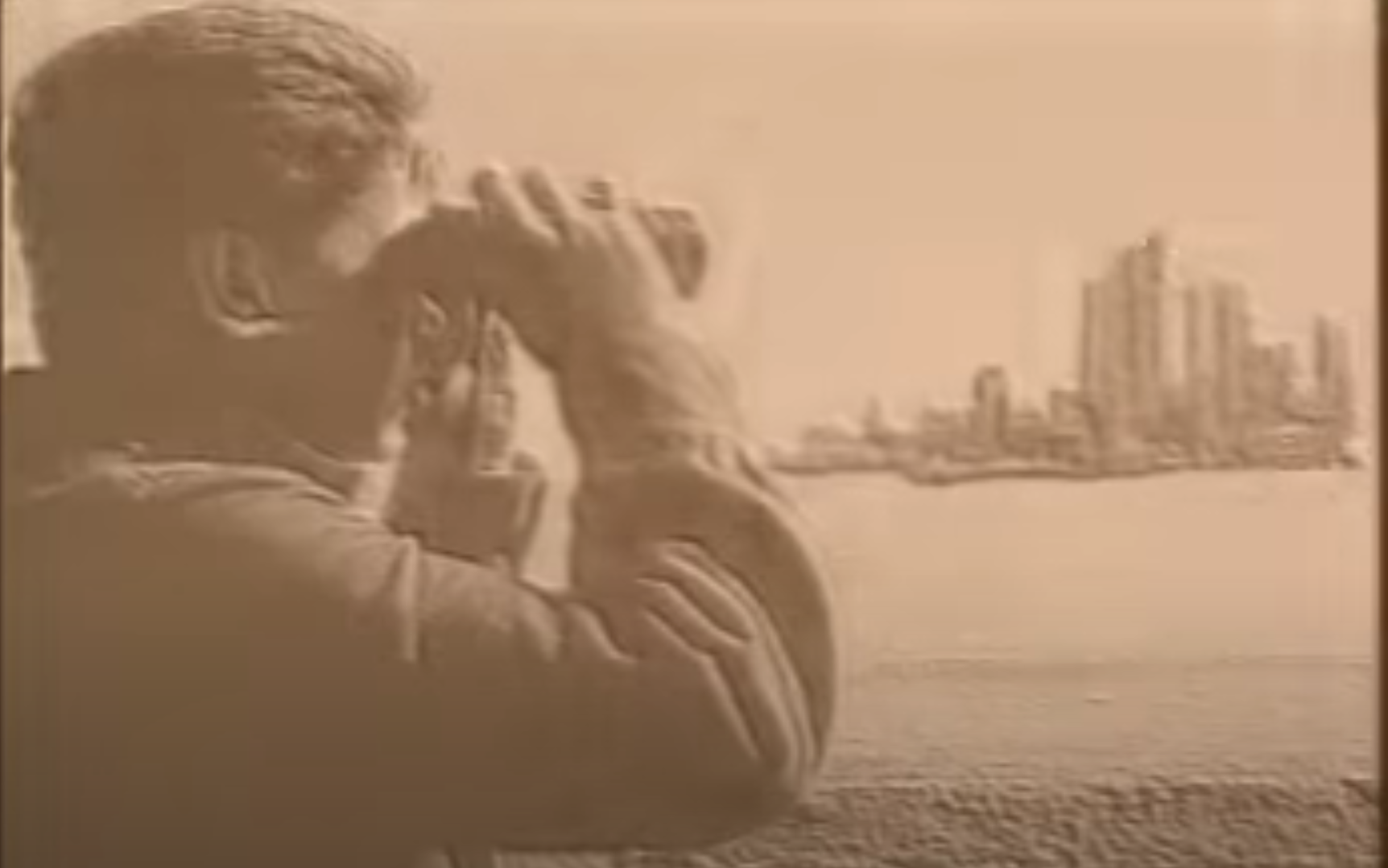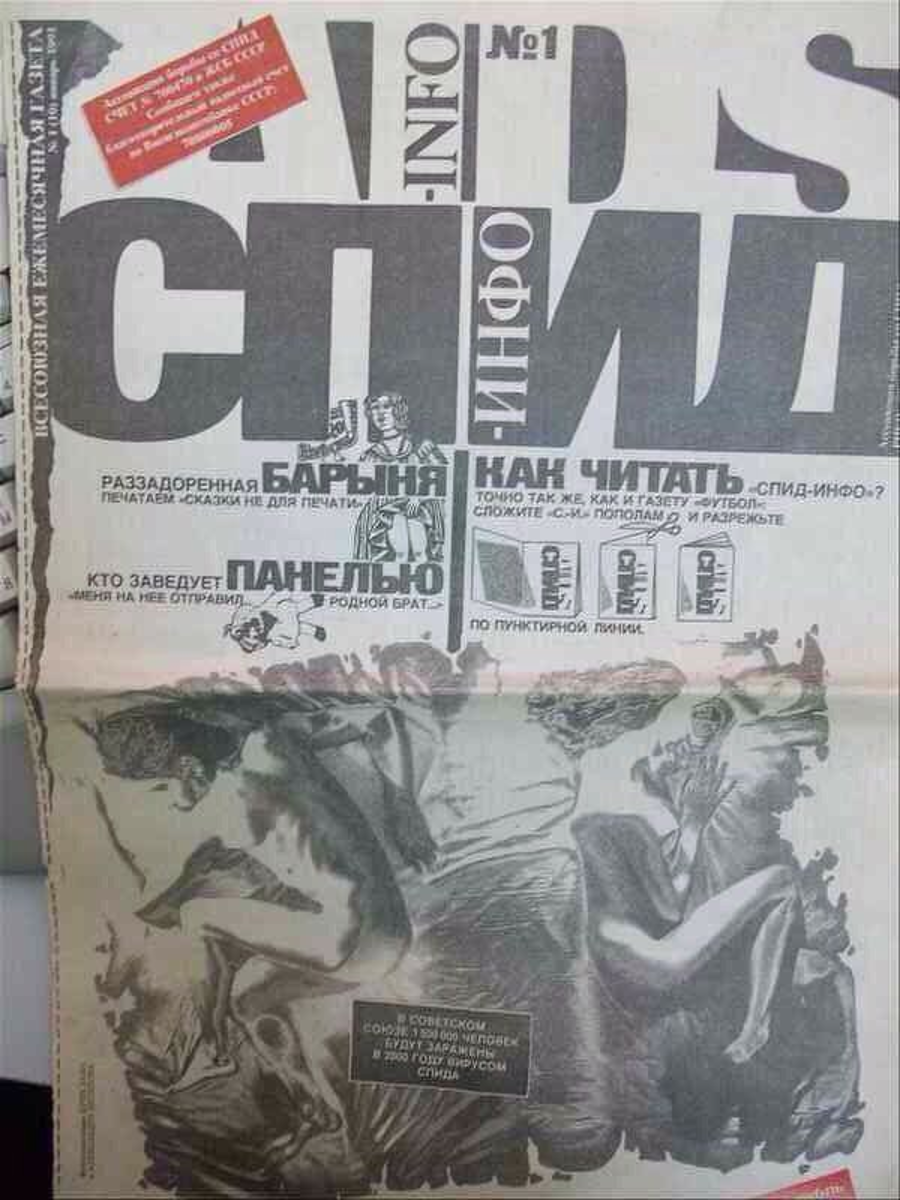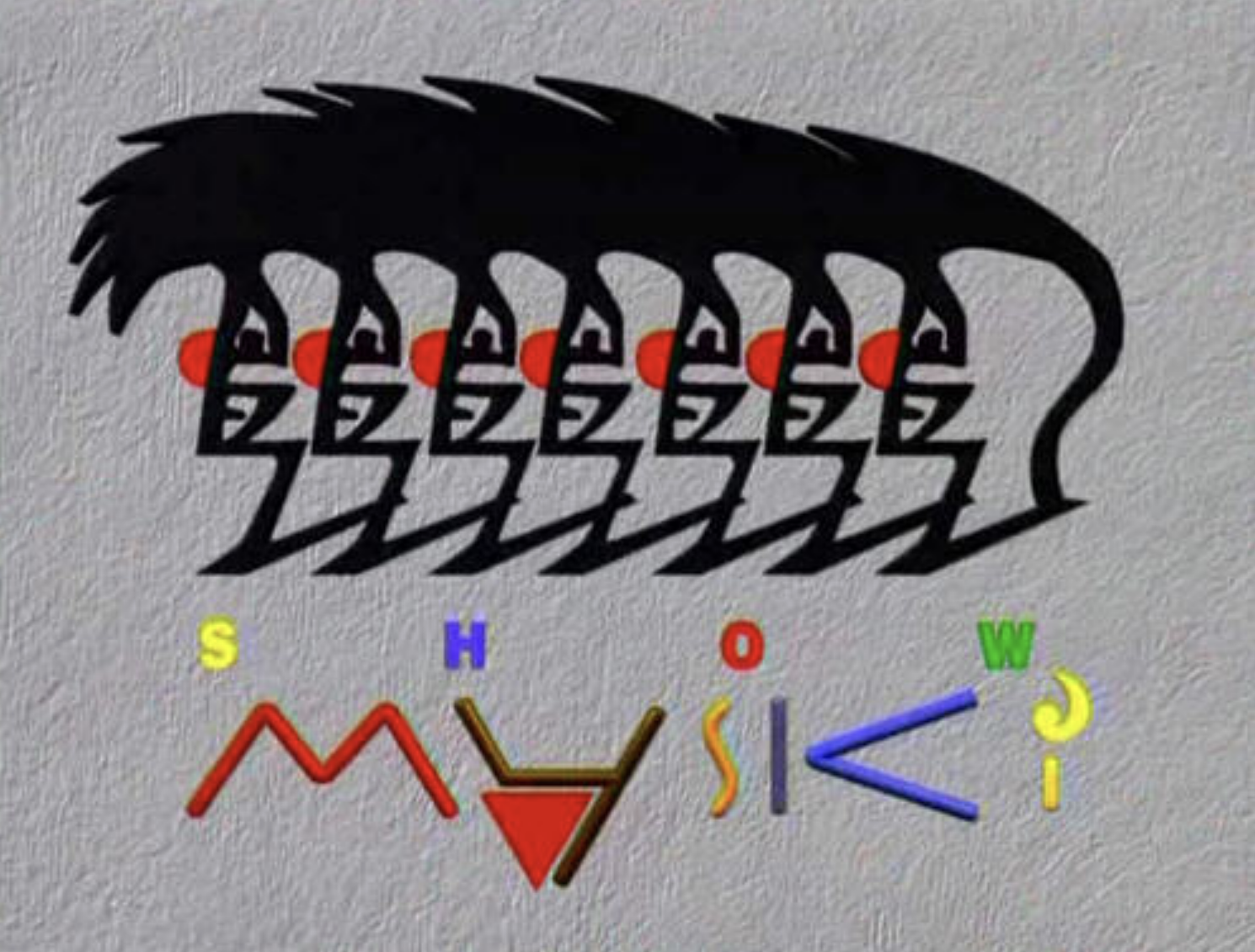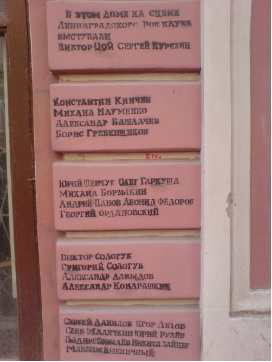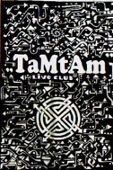Lyube’s “Stop Fooling Around, America!” (1992)
This 1992 music video for Lyube's “Stop Fooling Around, America!” uses retro newsreel footage and animation to demand Alaska’s return to Russia, deploying folksy humor to advance post-Soviet neo-imperialism.
SpidInfo #1, January 1991
The cover of the first issue of the early 1990s magazine SpidInfo, with an anxious nude couple turned away from one another in bed.
Georgii Deliev, "Mask Show [Maski Show]," 1991-2006.
A 1991 title screen for the sketch comedy program Maski-Show (Mask Show, 1991-2006) showing a stylized image of multiple people in clown make-up.
Leningrad Rock Club at 13 Rubinshteyna Street, Leningrad/ St Petersburg.
This St. Petersburg graffiti wall, which commemorated the Leningrad Rock Club, survived for two decades until its 2010 erasure by the building’s new owners.
TaMtAm Rock Club documentary for German television (1993)
This German television documentary captured one of Russia's first Western-style punk clubs, TaMtAm, founded in 1991 by Akvarium's Vsevolod Gakkel (1953-) after his visit to New York's CBGB.
Valery Pereleshin
A 1992 piece on the gay Russian émigré poet Valery Pereleshin (1913-1992), with excerpts from his verse cycle Ariel.
